How to Prepare Your Toddler for Preschool: A Step-by-Step Guide
- How to Prepare Your Toddler for Preschool: A Step-by-Step Guide
- Don't miss out - reserve your spot today!
- 1. Define Your Child’s SWOT
- 2. Research The School’s Academic Programs
- 3. Establish a Structured Routine
- 4. Prepare for Toddlers’s Emotional Changes
- 5. Foster Self-Care and Social Skills
- 6. Look for Student Support Service
- 7. Look for School Outdoor Activities
- Planning Beyond Preschool: Preparing for the Primary School Transition
- FAQs
- A Confident Start in Preschool
Preparing your toddler for preschool is a significant milestone that can be approached with thoughtful strategies to ensure a smooth transition. This guide outlines effective techniques on how to prepare your toddler for preschool, helping your child adapt to this new chapter in their life with ease and confidence.
We will help you establish routines and handle separation anxiety so that your child can feel confident and excited about their first preschool adventure.
- Define The SWOT of Your Child
- Research The School’s Academic Programs
- Make a Routine in the Preparation Period Before Letting Your Child in Preschool
- Prepare for Emotion Changes in Toddlers
- Foster Self-care and Social Skills for Your Toddler
- Look for School Student Support Service
- Look for School Outdoor Activities for your Toddlers
- Look for the Post-Preschool Path
Now let’s delve into details.
Don't miss out - reserve your spot today!
To register for “IB PYP Math with ISHCMC Students”, please fill in the form below.
"*" indicates required fields
1. Define Your Child’s SWOT
SWOT analysis helps analyze your child’s strengths, weaknesses, opportunities, and threats in any new environment, including preschool. Here are some questions you should ask:
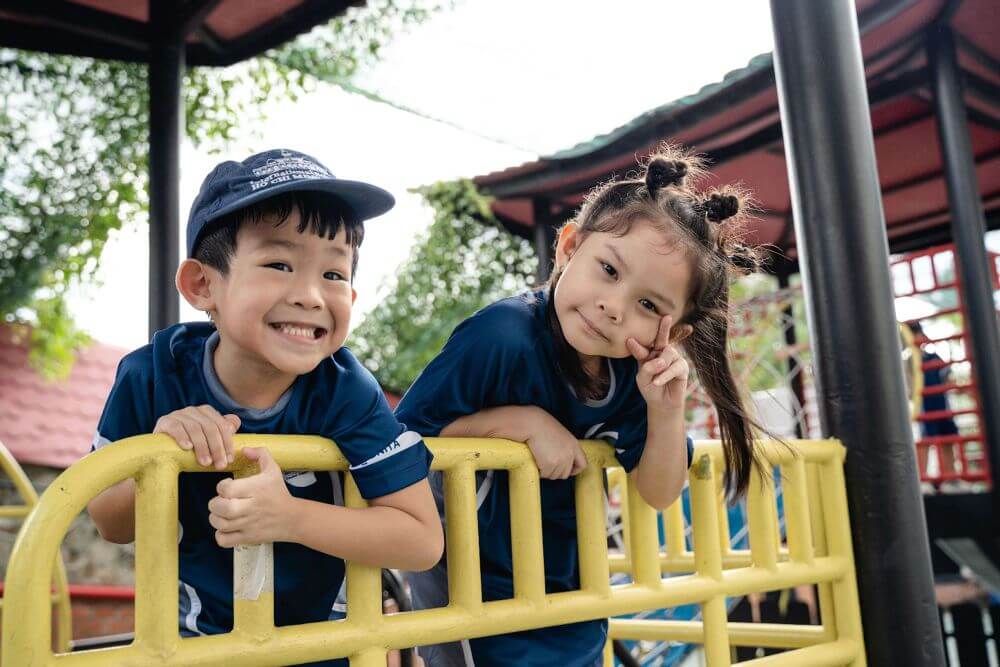
- Strengths:
- Does my child have good communication skills (verbal/nonverbal)?
- Can my child follow simple instructions?
- Is my child curious and eager to learn new things?
- Does my child have any special talents or abilities?
- Weaknesses:
- Does my child separate from me easily?
- Does my child have difficulty sharing toys or taking turns?
- Does my child get frustrated easily?
- Opportunities:
- Can we visit the preschool together beforehand?
- Can we read books or sing songs about preschool?
- Can we label belongings with your child’s name to prepare them for sharing?
- Threats:
- Is my child prone to separation anxiety?
- Is the preschool class size too large for my child’s comfort level?
- Does the preschool philosophy align with your parenting values?
By answering SWOT questions, you will have valuable insights to promote your child’s strengths, address their weaknesses, and growth opportunities to take the next steps. It can also help you brainstorm possible threats and take action to minimize them. This self-reflection can guide you in creating a positive and enriching environment for your toddler’s growth.
2. Research The School’s Academic Programs
As an exciting new chapter approaches, you might wonder how to prepare your toddler for preschool regarding their learning approach.
When preparing your toddler for preschool, focusing on their learning approach is crucial. It’s important to choose an academic program that not only develops core skills but also kindles a passion for exploration and discovery. Here’s what to consider to ensure your child’s learning approach is nurtured:
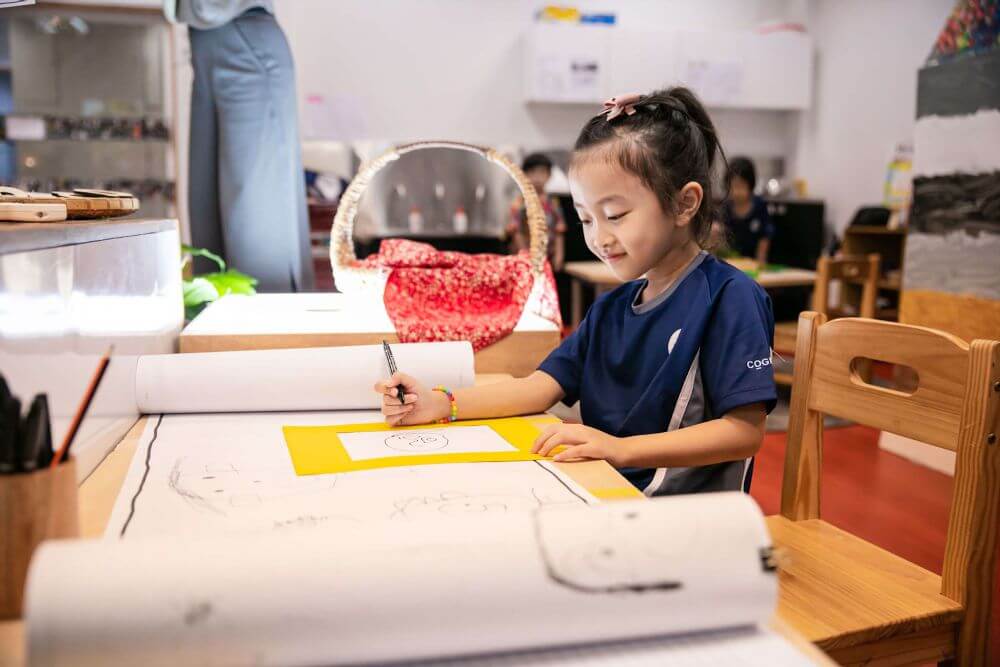
- Curiosity: Does the program encourage exploration and questioning? Are there opportunities for hands-on activities, discovery-based learning, and exposure to diverse topics?
- Achievement: Does the school acknowledge personal accomplishments and provide a nurturing atmosphere? Parents should search for a program that provides chances for mastering skills and a feeling of achievement.
- Resilience: How does the school cope with difficulties and obstacles? It’s advisable to search for a program that assists your child in learning from errors and building resilience.
- Empathy: Is the program focused on teaching social-emotional skills and encouraging positive relationships with classmates? A program that promotes compassion, teamwork, and empathy towards others’ emotions is necessary for your child.
Choose a preschool that emphasizes learning through play. Young children learn best when they are engaged in activities that they find enjoyable and meaningful. Play-based learning encourages curiosity, critical thinking, and problem-solving in a context that is natural and enjoyable for toddlers.
If toddlers speak English as a second language, parents should ask about support for English as an Additional Language (EAL). ICT integration can also foster interest and improve learning as long as it is tailored to the student’s age.
All of the programs above are also the main focus of ISHCMC, which fosters a nurturing and supportive environment for your toddler to shape their character and learning interests in this important stage.
3. Establish a Structured Routine
Preparing your toddler for preschool goes beyond just the first day. This checklist is a starting point, though it can be customized to your child’s needs:
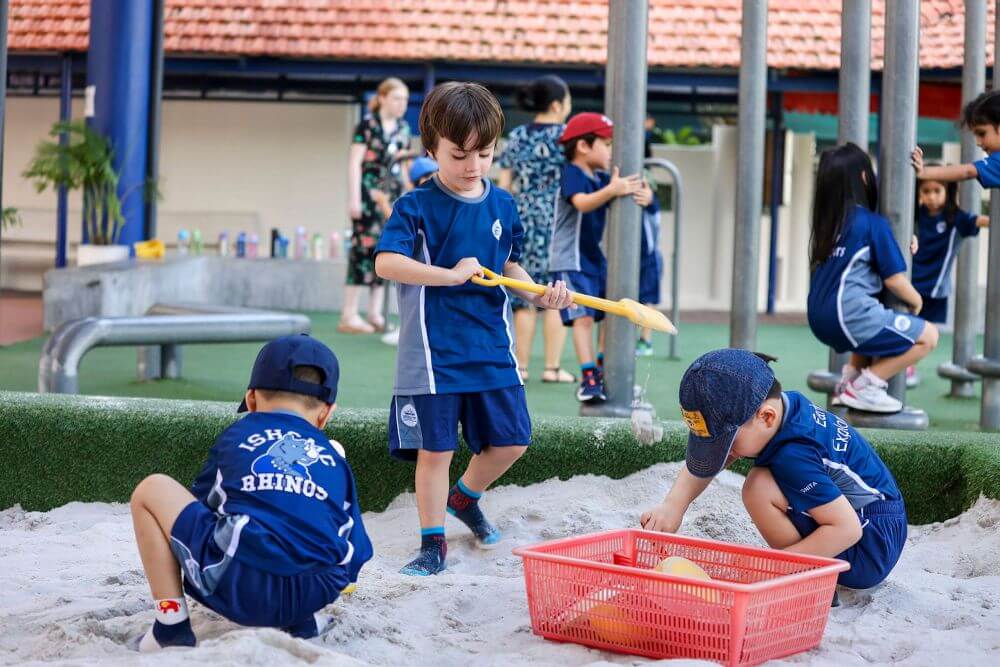
- Gradually adjust bedtime and wake-up times to match the preschool schedule.
- Practice using the toilet independently and washing hands properly.
- Help your child practice putting on and taking off clothes, especially shoes.
- Let your child choose a favorite backpack and practice packing a lunch box (if applicable).
- Encourage short playdates or visits with friends or family members to get used to being apart.
- Read children’s books that illustrate the preschool setting and daily schedules.
- Describe the enjoyable activities, potential new friendships, and educational opportunities in school.
- Label all clothing, backpacks, and lunchboxes with your child’s name.
- Develop a brief and optimistic goodbye routine, such as embracing and sharing a unique handshake.
- Engage in educational activities such as circle time, storytime, and playtime.
- Discuss the emotions your child may feel, such as anticipation or anxiety, and provide comfort.
- Permit your child to bring a security blanket or beloved stuffed animal for comfort (make sure to check school rules).
- Select comfortable clothing that is simple to wear and suitable for messy activities (running, drawing, etc.)
- Talk to your child’s teacher regularly to stay updated on their progress and address any concerns.
4. Prepare for Toddlers’s Emotional Changes
Preparing your toddler for preschool involves understanding their emotional state. Here’s a look at some common emotional shifts and how you can help your little one navigate them.
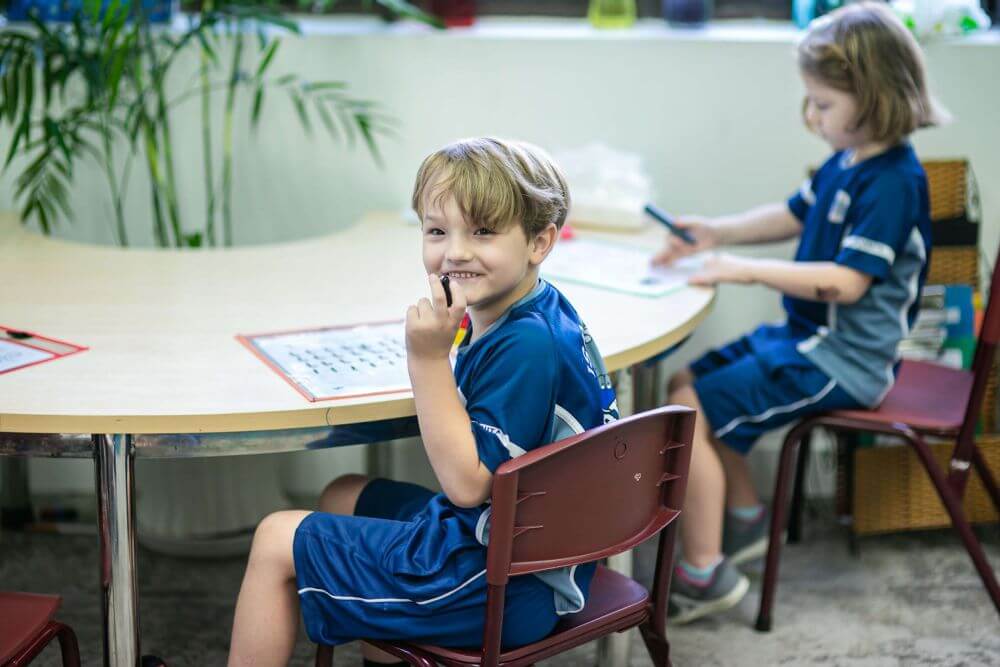
- Excitement: They might be thrilled thinking of making new friends and exploring a new environment. Parents can talk about the fun activities they’ll do and encourage them to pick out their outfits for the first day.
- Anxiety: Separation from familiar caregivers can be scary. Parents can handle this by practising short goodbyes with trusted relatives and talking about the routines at preschool to ease their worries.
- Frustration: Sharing toys and following instructions might be new concepts. Parents should role-play these situations and use positive reinforcement when they cooperate.
- Anger: Preschool can be stimulating, and meltdowns can occur. Acknowledging their feelings, offering calming techniques like deep breathing, and helping them express their needs with words can help them release these negative feelings.
- Sadness: The missing feelings are natural. Parents can create a goodbye ritual, like a special hug, and assure them you’ll pick them up soon.
5. Foster Self-Care and Social Skills
Preparing your toddler for preschool involves nurturing a range of skills that will facilitate a seamless transition into this new phase of their life. It’s about equipping them with the necessary social, psychological, cognitive, sensory, and motor skills to thrive in a preschool setting.
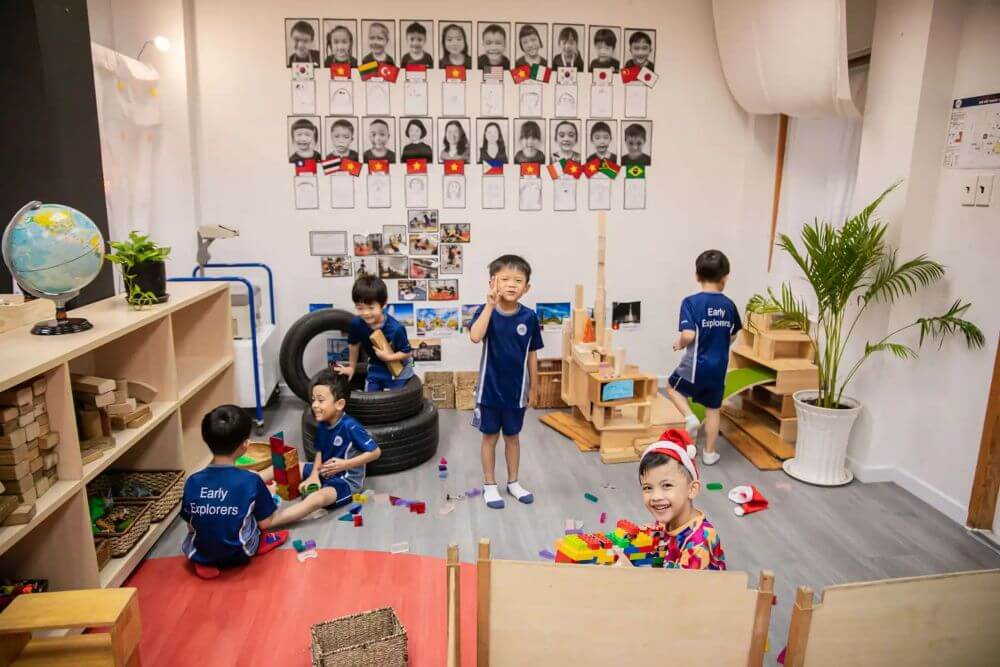
- Sensory play exposes toddlers to different textures, sounds, and sights. Encourage your children to discover their world by helping them do finger painting, constructing blocks, and playing with play dough.
- Motor skills involve fine and gross motor development. Fine motor activities such as threading beans or sorting out toys can be promoted, while gross motor activities like climbing, running, and jumping are also integrated into playtime.
- Cognitive skills are learning and problem-solving. Activities such as singing songs, reading books, or pretend play contribute significantly to a toddler’s cognition.
- Psychological development involves emotional regulation and self-care. Allow toddlers to express themselves emotionally as well as practice coping mechanisms.
- Social skills are essential for navigating preschool interactions. Encourage your kids to take turns during playtime so that they learn how to share things with others as well as cooperate with one another.
6. Look for Student Support Service
Preparing your toddler for preschool goes beyond academic readiness; it’s also about understanding and utilizing the school’s support services to alleviate stress for both the parent and the child.
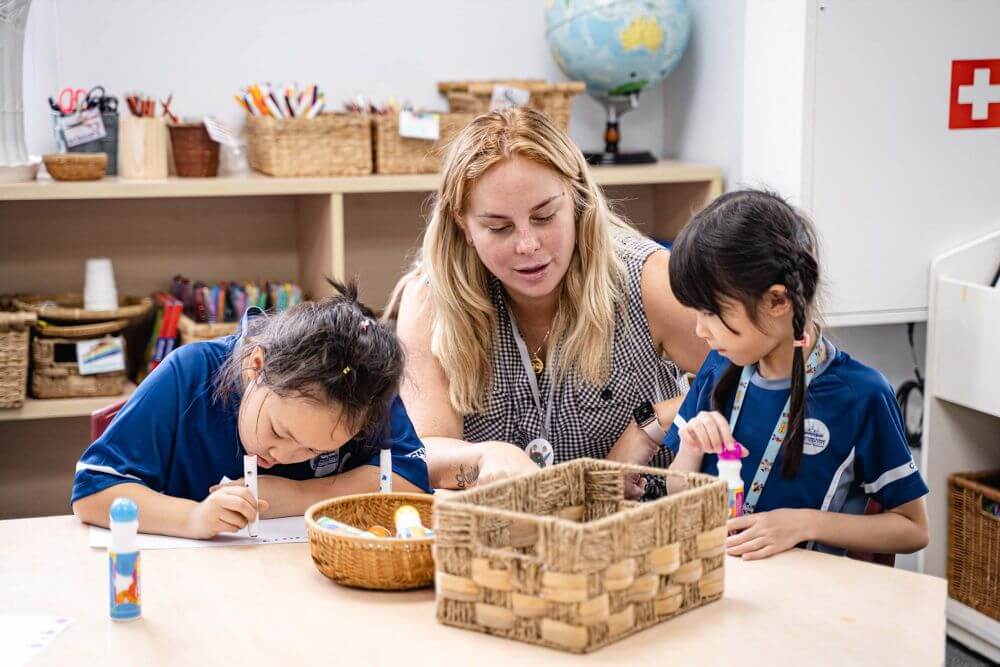
When selecting a preschool, it’s crucial for parents to consider whether the institution offers School Student Support Services. These services are vital as they provide a range of assistance tailored to the unique needs of each child, ensuring they receive the most beneficial and holistic early education experience possible.
A well-equipped preschool should offer a range of services, such as speech and language therapy, occupational therapy, and programs focused on social-emotional development. They also often have dedicated professionals who are qualified in the area. Those services are designed to support children with diverse needs, ensuring they have a solid foundation for learning and interaction.
7. Look for School Outdoor Activities
While academic development is crucial, outdoor school activities play an essential role in creating a well-rounded educational experience for children. These activities offer more than just physical benefits; they foster social and emotional growth, contributing to a holistic development foundation.
Gardening, nature walks, or just playing tag in a secure outdoor space can enable toddlers to explore their immediate environments, learn new ideas through practical experiences, and build their gross motor skills.
Moreover, outdoor learning can be extended into summer camp programs. Summer camps offered by the same preschools provide toddlers with an interesting and enjoyable environment.
At the camps, toddlers can engage with their new peers and counsellors, thereby developing their socialization abilities. The benefits of summer camp extend beyond the summer months, preparing toddlers for a smoother transition into full-day school in the Fall.
Planning Beyond Preschool: Preparing for the Primary School Transition
While the focus might be on how to prepare your toddler for preschool. However as you prepare your toddler for preschool, it’s also wise to have an eye on the future, particularly their transition to primary school. This forward-thinking approach ensures a smoother progression from one educational stage to the next.
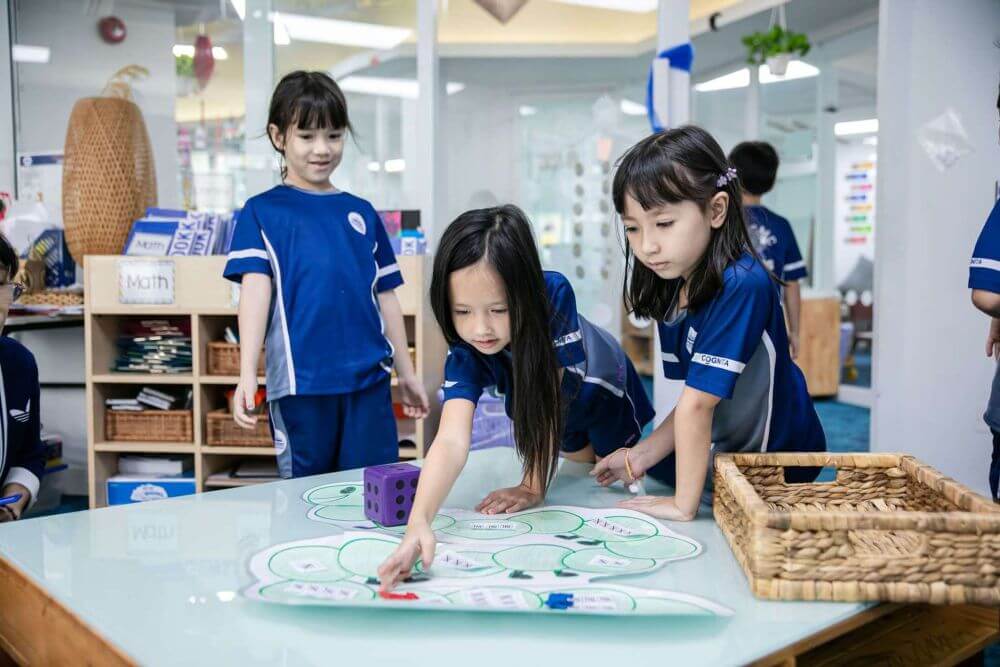
Here are a few pointers to consider for primary schools:
- Continuity of Learning: Look for a primary school that builds upon the skills developed in preschool. This could involve similar learning styles or a focus on social-emotional development alongside academics. For example, schools with the IB Primary Years Programme (PYP) can offer a well-rounded curriculum and environment to fully develop your children from an early stage.
- Communication: Open communication between preschool teachers and the chosen primary school can ensure a seamless transition. This allows the primary school to understand your child’s strengths and areas for development.
- Familiarity: Consider schools that offer opportunities to visit beforehand. This can help your child feel comfortable in their new environment.
FAQs
Now let’s delve into some frequently asked questions regarding how to prepare your toddler for preschool:
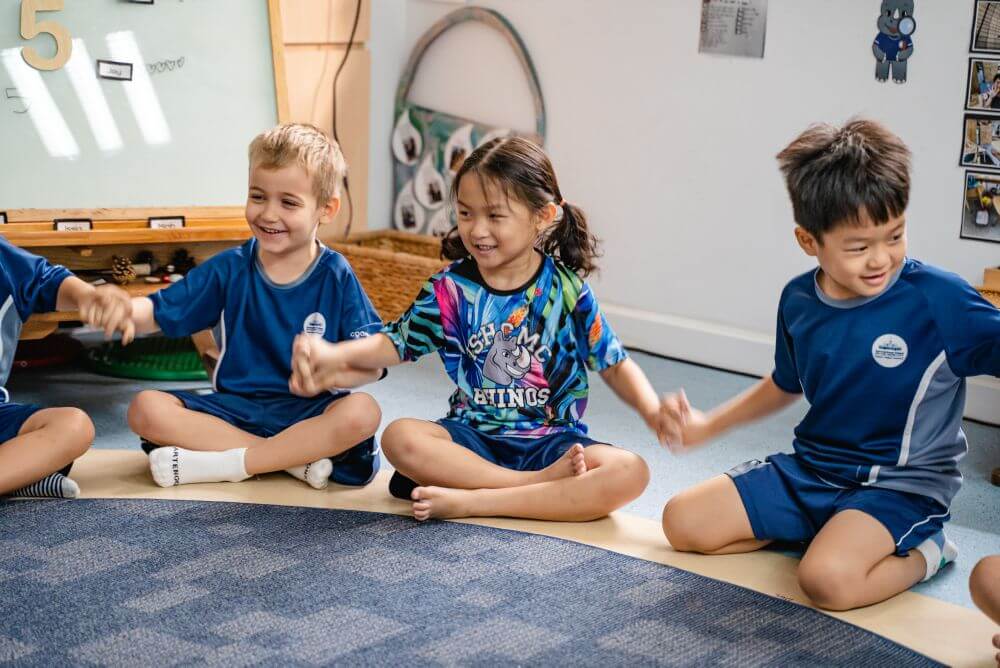
Will my child be able to adapt to the language of instruction if it’s not their native language?
Absolutely! Children learn languages very fast by listening to new sounds and structures. This is why international preschools try to create a multicultural environment where all languages are esteemed.
With classmates speaking different languages, their linguistic abilities would be improved as they would have rich linguistic worlds in which they will grow and learn through the language of instruction.
How can I help my toddler adjust to the cultural differences they may encounter in an international preschool?
You can help your children by embracing the diversity your toddler will experience in their international preschool. It’s good to read about different cultures, listen to various types of music, and explore food together. It not only excites children but also makes them feel like they belong and look forward to being part of such welcoming multicultural preschool environments.
Are there transportation options provided by the international preschool, especially if it’s located far from our home?
We offer bus transportation for students 4 and older. Parents with children in both Primary and Secondary schools can use our complimentary shuttle for Secondary students, making drop-off a breeze. All buses follow our safety guidelines, with trained staff ensuring a secure and well-behaved ride.
A Confident Start in Preschool
By following this step-by-step guide on how to prepare your toddler for preschool, you’ve created a solid foundation for a successful and enjoyable experience. Remember, a smooth transition takes time and patience. With a little preparation, you can ensure a positive first experience that sets the stage for a lifelong love of learning.
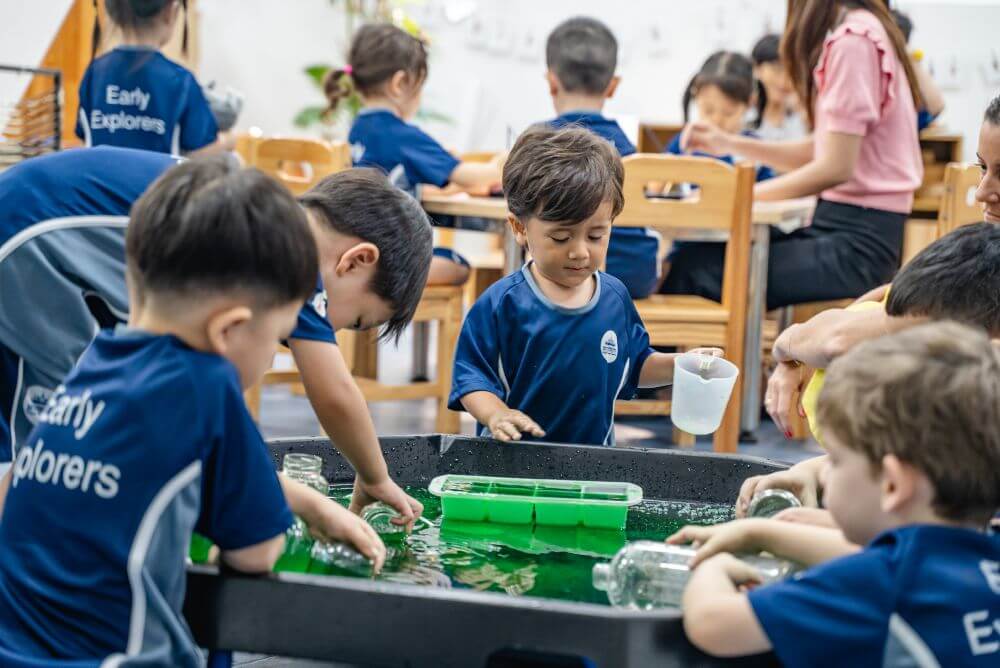
Are you ready to explore beyond preschool? ISHCMC offers a nurturing and stimulating environment that builds upon the foundation set in preschool. Apply to ISHCMC’s Primary School today to learn more about our admissions process and discover how ISHCMC can empower your child’s journey as a lifelong learner.






